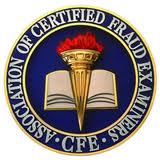All you need to know about self reporting, Bribery Act & Proceeds of Crime - Written by Barry & Richard on Sunday, November 13, 2011 11:00 - 0 Comments
BREAKING: We’ll see your new FCPA guidance and raise you: SFO plans Self Reporting guidance to be updated
 On Friday the UK Chapter of the Association of Certified Fraud Examiners held its annual conference. Among the speakers (which included Barry) was Glyn Powell Head of Fraud, at the SFO.
On Friday the UK Chapter of the Association of Certified Fraud Examiners held its annual conference. Among the speakers (which included Barry) was Glyn Powell Head of Fraud, at the SFO.
Mr. Powell spoke extensively about Self Reporting and noted, in passing, that the SFO is looking to update the Self Reporting guidance first published in 2009 following the entry into, and in light, of the Bribery Act.
He did not give a timescales for the amendment of the existing guidance but acknowledged that the present guidance had limitations.
He also confirmed that what we have highlighted previously namely that the SFO seeking to improve ethical conduct generally using its armoury of old and new criminal laws.
Speaking of outcomes he noted the range of disposals available in the context of corporate wrongdoing.
At the criminal prosecution end of the spectrum, he drew on the judgment in Innospec pointing to the judicial comment about potential US size fines which, he said, provided corporates with a powerful incentive to liaise and self disclose.
At the other end of the spectrum, speaking of non criminal prosecution outcomes he emphasised that one of the most important factors in determining outcomes (civil or criminal) will be whether the corporate self reported.
What is the SFO looking for following a Self Report?
He said that the SFO was looking for corporates to be genuinely engaged. The corporate must provide details of what’s gone wrong and provide ongoing cooperation.
He acknowledged that a decision to self report would not be taken lightly, and there would be PR implications, the likelihood of a heavy penalty and no guarantees on civil (as opposed to a criminal) outcome. However, he said, a Self Report was the best place to start if a civil outcome was desired.
Our view
The self reporting guidance initially published in 2009 needs an overhaul in light of the Bribery Act.
There is a (short) track record following Self Reports and it will be useful for the principles applied through some of the cases to be included in the revised guide.
The SFO is heavily reliant on Self Reporting and co-operation and it is a key determinative factor in the context of obtaining a civil (as opposed to criminal) outcome.
Corporates crave certainty above all else.
Given the likely lengthy timescale for the introduction of a Deferred Prosecution Agreement system in the UK it will be critical that there are clear guidelines and principles about Self Reporting.
The SFO must also demonstrate that it will follow them.
History is the best guide to the future
Only this will create a track record for corporates who would like to understand the likely outcome and give credibility to the SFO’s numerous pronouncements of its pragmatic and reasonable approach (which we applaud).
Image © Association of Corporate Fraud Examiners UK Chapter, Copyright 2011


